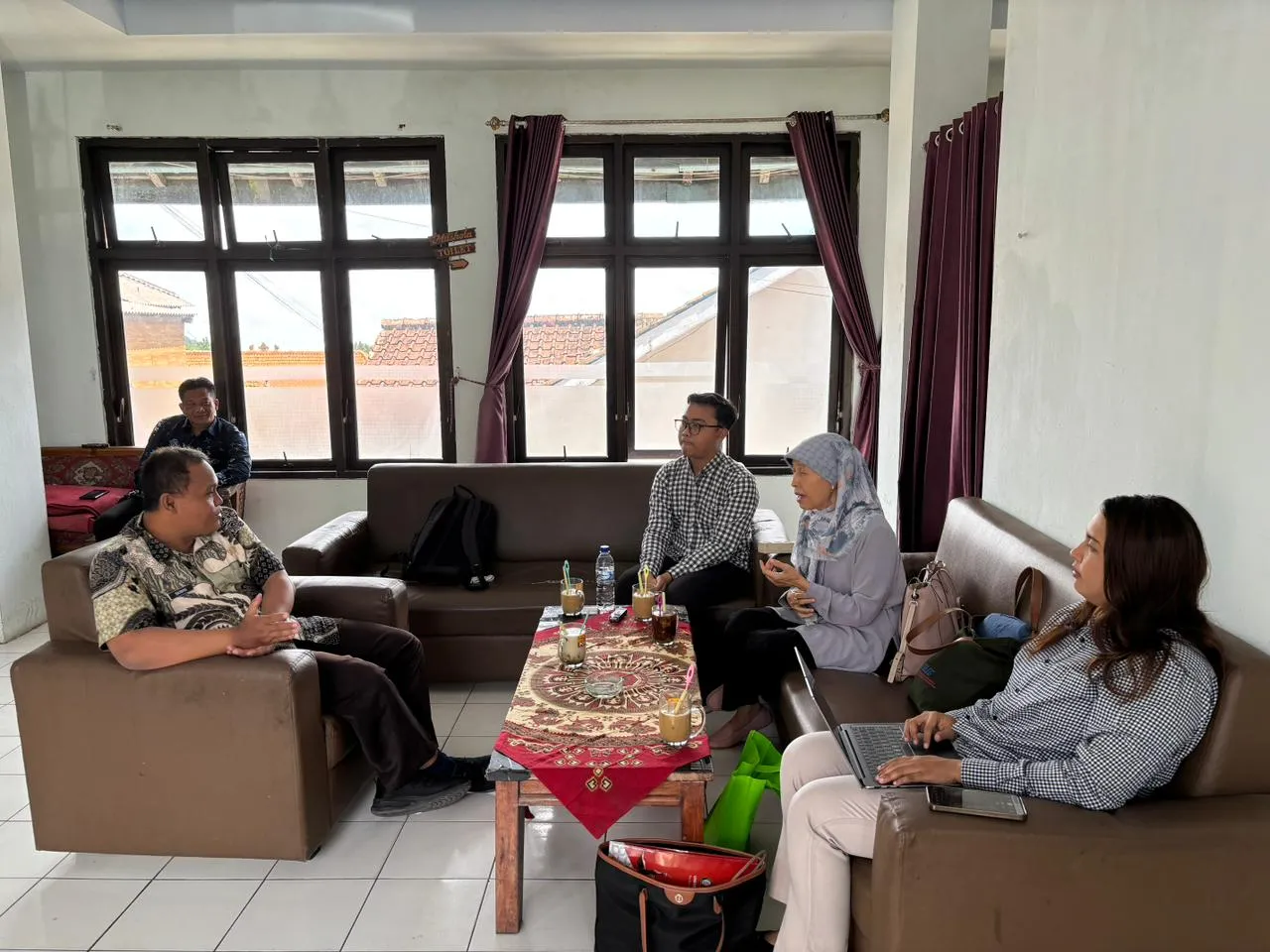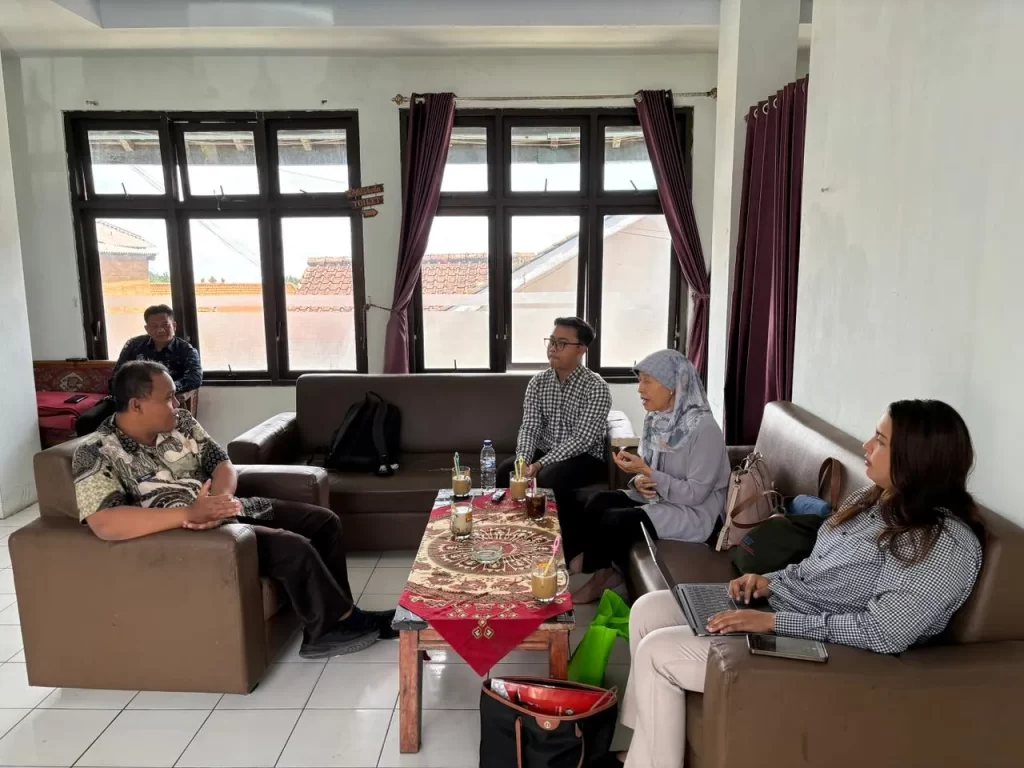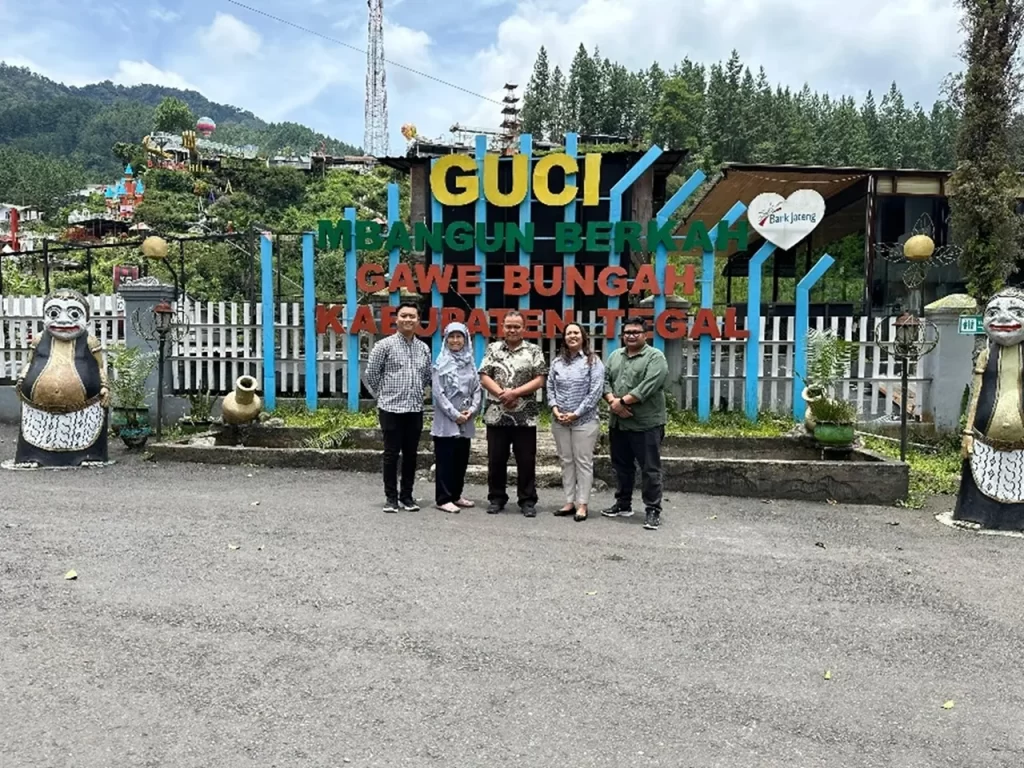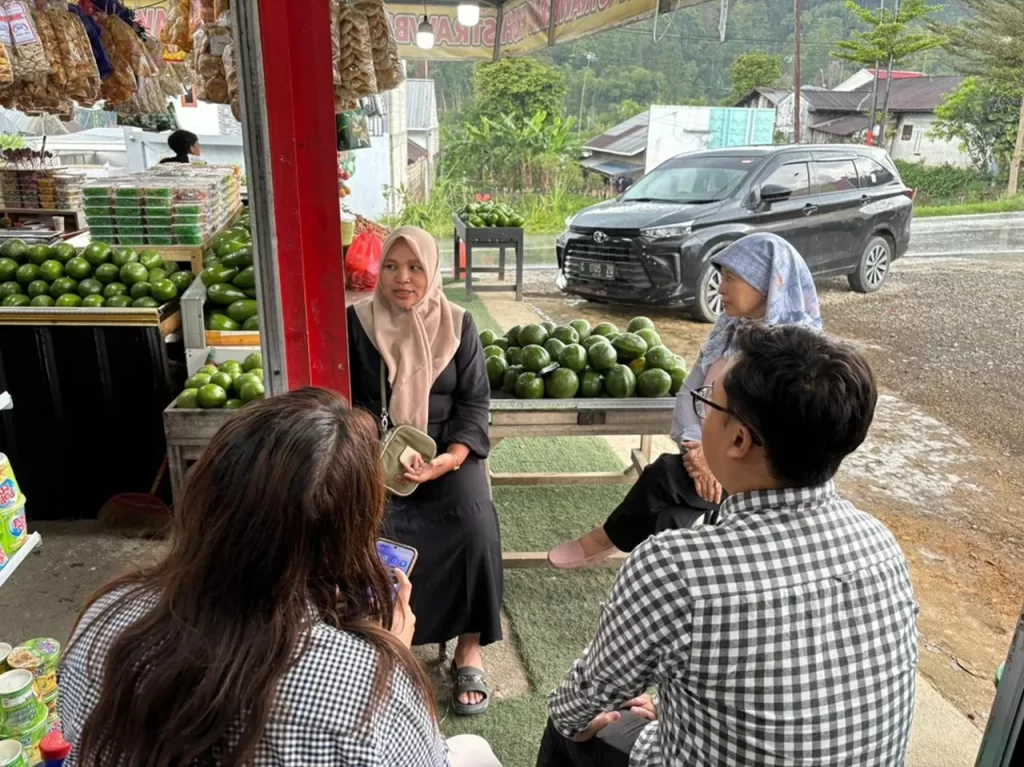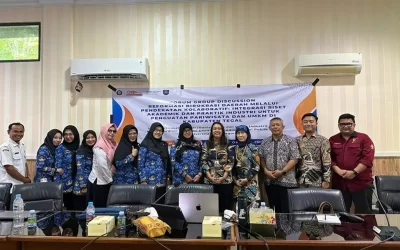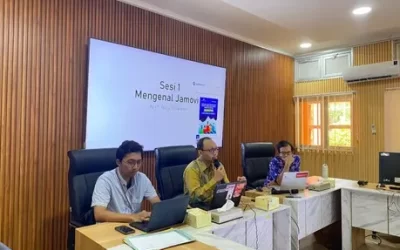Tegal Regency, October 2, 2025 – The Bureaucratic Reform Academic Expertise Cluster of the Department of Public Administration, Faculty of Social and Political Sciences, Universitas Diponegoro, conducted a field survey at the Guci Hot Spring Tourist Destination, Tegal Regency. This activity focused on mapping the actors, systems, and institutions of Micro, Small, and Medium Enterprises (MSMEs) operating in the Guci tourism area. The survey aimed to provide a comprehensive overview of the dynamics of local MSMEs and serve as a basis for formulating recommendations to strengthen data-driven governance in the MSME sector in Indonesia.
This activity is part of the “Regional Bureaucratic Reform through a Collaborative Approach: Integration of Academic Research and Industrial Practice to Strengthen Tourism and MSMEs in Tegal Regency” program series, which aims to enhance the synergy between academic research and real-world practice.
On this occasion, the Bureaucratic Reform KBK team from FISIP Undip also held direct discussions with the Head of the Guci Tourist Area Management, Satriyo Pribadi, regarding tourism management strategies and the role of MSMEs in supporting the sustainability of tourist destinations.
“MSMEs are important partners in the Guci tourism ecosystem. The presence of academic teams such as FISIP Undip is very helpful for us in designing data-driven policies, so that tourism development does not only increase visits, but also truly brings economic benefits to local communities,” said Satriyo Pribadi.
Dr. Dra. Dyah Lituhayu, M.Si., Head of the Bureaucratic Reform Academic Expertise Cluster, also emphasized that the results of this survey are expected to become the basis for comprehensive mapping, as well as strengthen collaboration between regional government, MSME actors, and academics.
As part of the field survey activities, the Bureaucratic Reform team from FISIP Undip also conducted interviews with representatives of Nasya Food Griya Manisan, one of the producers of Guci’s signature souvenirs in the form of various fruit preserves. The MSME representative stated that the existence of the Guci tourist site provides significant opportunities for local entrepreneurs to grow their businesses. Their preserves have become a favorite option for tourists to take home from Guci.
Furthermore, they highlighted that support from the Tegal Regency Government, particularly in the form of business permit facilitation, is a key factor enabling MSMEs to survive and improve their product quality.
“We feel greatly assisted by the business permit facilitation provided by the local government. This makes running our business easier and increases consumer trust. With research from academics such as FISIP Undip, we hope Guci MSMEs will become more widely known and continue to develop,” said a representative from Nasya Food Griya Manisan.
The presence of MSMEs like Nasya Food Griya Manisan serves as tangible proof that collaboration between the government, community, and academia can unlock greater economic opportunities and strengthen Guci’s identity as a leading destination in Tegal Regency.
This field survey is also part of the Business and Industrial World (DUDI) activity scheme under the World Class University (WCU) program. Through this program, FISIP Undip is committed to making a real contribution to supporting regional bureaucratic reform as well as strengthening the tourism and MSME sectors in Tegal Regency.

